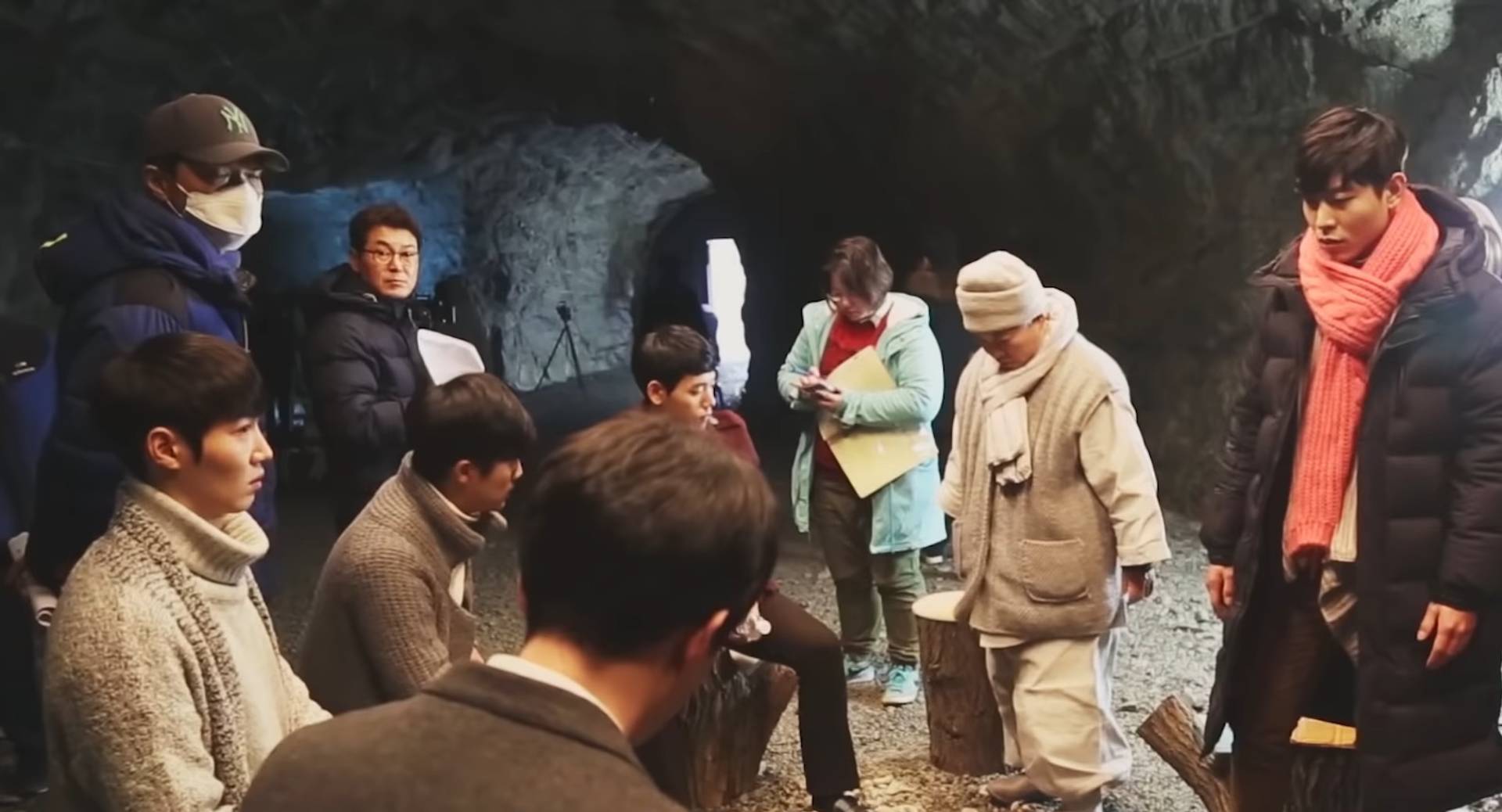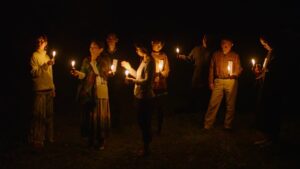CRAIG C LEWIS
The 18th Sakyadhita International Conference was recently held in Seoul under the theme “Living in a Precarious World: Impermanence, Resilience, Awakening.”* From 23–27 June, more than 3,000 Buddhist monastics, laywomen, guests, and dignitaries from South Korea and around the world gathered to share their experiences and research, and to provide support and encouragement for projects and initiatives to improve the lives of Buddhist women. The five-day forum provided an opportunity to touch bases with old friends from around the world, to forge new connections, to learn and to exchange ideas, to inspire and to be inspired.

BDG was privileged to attend this unique manifestation of the sacred feminine in the contemporary Buddhism, and to meet some of the women who are working to shape the face of Buddhism today. Among the many female monastics attending this remarkable forum was Venerable Daehae Sunim, a Korean bhikshuni and Dharma master of 28 years experience who has been exploring the medium of film as a means of communicating spiritual and philosophical concepts with a larger audience. BDG sat down with Ven. Daehae Sunim on the sidelines of the conference to learn about her work as a Buddhist filmmaker.

Alongside her work as a Dharma teacher at her monastery near the South Korean city of Gyeongsan, Ven. Daehae Sunim has been writing and directing movies since 2007, with more than 90 short films to her credit, including The Last Words of Socrates and What is My True Self!, that have garnered 86 awards at international film festivals. In late 2018, she released her first feature-length film, the award-winning Sermon on the Mount, which examines some of the core philosophical questions explored by both Buddhism and Christianity, with a view to sharing a harmonized view of these ancient spiritual traditions that might help to promote happiness and peace in our troubled world.
“Originally, I was thinking about making a film on human values that might help people around the world to live more peacefully and promote religious harmony,” Ven. Daehae Sunim—also known as a film director by her lay name, Yoo Young-Uee—told BDG. “I’ve always tried base my teachings on understanding the essence of human life, but looking at current global trends, I realized that books and the written word may not be the best way to spread this message; now it’s all about movies as a medium for mass communication. So I thought it would be more helpful and more efficient to to share a message about the truth of life, the essence of human nature, with the people of the world using this movie.”
On the surface, Sermon on the Mount is a biblical film, centering on a group of eight young Christians who gather in a mysterious cave to ponder and debate the questions they have about their faith: Why is the world filled with disaster if an omnipotent God exists? What is the tree of the knowledge and the forbidden fruit? Why did God make the fruit and let people pick and eat it? Why were we born in sin for what Adam did? If God created man, why is man considered sinful and not God?
“Actually, the truth of spirituality and the essence of this human life is basically the same between all religions, no matter whether Christianity, Buddhism, Islam, and so on,” Ven. Daehae Sunim explained. “In Buddhism, we have a path to realize enlightenment through faith, understanding, and practice in real life, and onward to awakening. We believe this is a more helpful and efficient way to realize the ultimate truth of life through the process of enlightenment. In the case of Christianity, usually we understand the main purpose is to have faith in God. As such, we find Buddhism to be a more efficient teaching to recognize the true essence of human life, and this is also why I could easily understand and recognize the spiritual commonalities between Buddhism and Christianity.”

Sermon on the Mount broaches the familiar Buddhist concepts of non-self (Skt: anatman) and interdependence and interconnection (Skt: pratityasamutpada) by investigating the Christian relationship between man and God and the sense of separation that can be found there, when, in fact, God and mankind can be understood as expressions of a profound, ineffable oneness.
“Actually, we can recognize that humans, Jesus Christ, and God are all the same thing. And that’s why, similarly, if we look at the essence of human life and all phenomena, it’s all one interconnected unity,” Ven. Daehae Sunim observed.
“There is one member of the congregation at my monastery here in Korea who knows the Bible very well. And I asked him to show me where in the Bible these concepts are expressed and addressed. This is how I was able draw on the philosophical parallels between Buddhism and Christianity that form the foundation of the movie’s scenario.”
In addition to screenings at numerous international film festivals around the world and a host of awards, Sermon on the Mount has been previewed at the United Nations headquarters in New York City, in observance of World Interfaith harmony Week, and at the Salesian Pontifical University in Rome, delighting audiences, intriguing scholars, and drawing praise from Pope Francis.
“Actually, positive feedback to this film from the Buddhist community or from the Christian community does not matter,” noted Ven. Daehae Sunim. “What’s important is whether people can understand the essence of the content of this movie. Even among Christians, there are people who have difficulty understanding this movie and there are people who understand very well. For example, there was one Christian priest who told me that while he did not agree with my underlying premise, he acknowledged that the film was very well-made and presented, so he couldn’t criticize it. Likewise, among the Buddhist community, there are people who have understood the themes well and people who have had difficulty understanding. But my main intention is to underscore the commonalities between the fundamental beliefs of these two communities to help mankind in its search for meaning and peace.”
Ven. Daehae Sunim completed filming her forthcoming feature in April this year. With editing now underway, the film is expected to be ready for release very soon. Sermon on the Mount is expected to become available on Netflix in the near future.
The Sakyadhita International Association of Buddhist Women is the world’s leading body committed to transforming the lives of women in Buddhist societies, aspiring to empower and unite Buddhist women, promote their welfare, and facilitate their work for the benefit of the Dharma and all sentient beings. “Sakyadhita” means Daughter of Shakya (the clan name of the historical Buddha). Working at the grassroots level, Sakyadhita provides an international network among Buddhist women, promoting research and publications and striving to create equal opportunities for women in all Buddhist traditions.
* Daughters of the Buddha: 18th Sakyadhita Conference in Seoul Celebrates the Sacred Feminine (BDG)
See more
18th Sakyadhita International Conference: Living in a Precarious World: Impermanence, Resilience, Awakening
Sakyadhita International Association of Buddhist Women
Related features from BDG
Daughters of the Buddha: 18th Sakyadhita Conference in Seoul Celebrates the Sacred Feminine
From Bhutan to Korea: Reflections of a Female Monastic on the Buddhist Path
Related news reports from BDG
Living in a Precarious World: 18th Sakyadhita Conference Commences in Seoul
Craig C LewisCraig Lewis grew up in a transplanted Scottish family in southern England before setting off against all advice to seek light and wisdom in far-off places, rather than staying put and looking within. After repeated encounters with the Buddhadharma as a journalist in Thailand, Singapore, Hong Kong, and across Asia, he eventually found refuge as senior editor at BDG, where he reports and writes on the diversity of contemporary manifestations of the Dharma. Craig is also a keen mountain trekker and photographer, finding particular inspiration in the peoples, cultures, and Buddhist expressions of the Himalaya. In his column for BDG, “Chasing Light,” Craig seeks to document encounters, experiences, and epiphanies resulting



